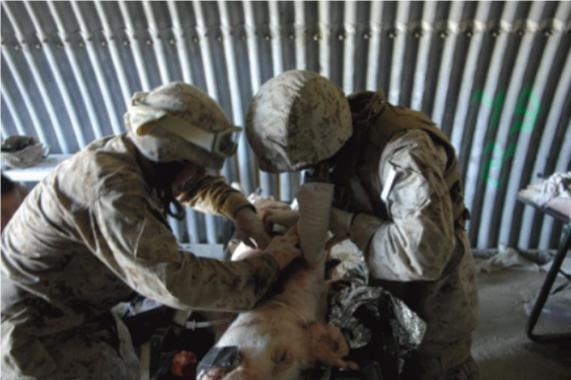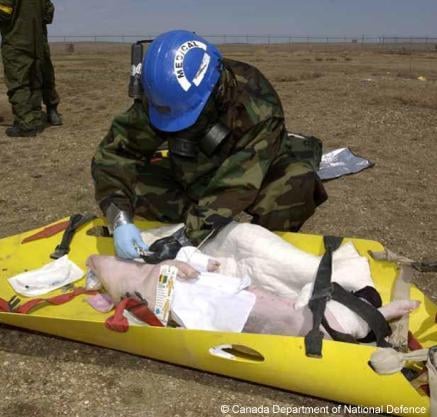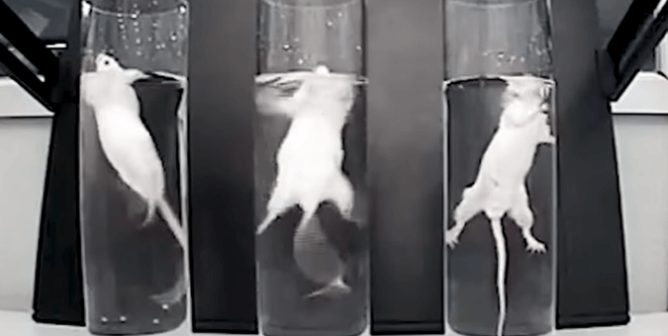Pigs in Laboratories
In addition to the millions of pigs who are killed on factory farms annually, tens of thousands more are abused in U.S. laboratories.
In U.S. military trauma-training courses, these sensitive, intelligent beings are shot, stabbed, dismembered, and burned. An observer at a trauma training session described what happened to one pig: “They shot him twice in the face with a 9-millimeter pistol, and then six times with an AK-47 and then twice with a 12-gauge shotgun. And then he was set on fire. I kept him alive for 15 hours.”
Pigs are mutilated and killed in invasive and deadly surgical training exercises at universities and hospitals. In the exercises, holes are cut into the animals’ throats, needles are stabbed into their bones, and the tissue surrounding their hearts and organs is removed. These deadly and archaic exercises continue, even though modern and superior non-animal simulation methods that better prepare trainees to treat human patients exist.
At the University of Texas Medical Branch at Galveston (UTMB), pigs are subjected to third-degree burns on up to 40 percent of their bodies, with the open flame of a Bunsen burner or a scorching-hot metal rod. A UTMB whistleblower informed PETA of egregious mistreatment of pigs and other animals in the university’s laboratories, and in response to multiple complaints filed by PETA, the university was cited and fined.
You can help. Please urge U.S. Department of Defense and Department of Homeland Security officials to take immediate action to replace the use of pigs and other animals in military trauma training with superior non-animal training methods.









